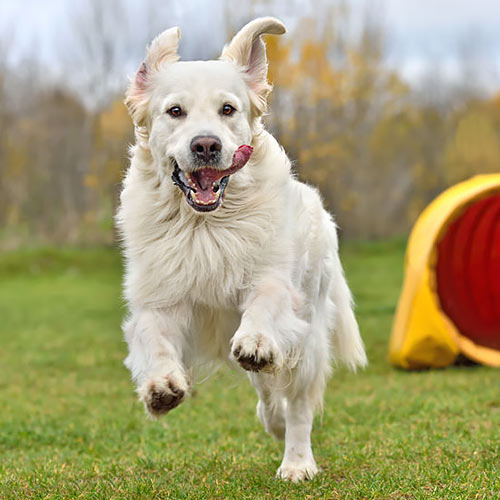
The profession of dog trainer is constantly changing. These changes are generally brought on by broader shifts in societal attitudes towards pets, advances in technology, and a deeper understanding of animal psychology. Throughout the 21st century, the role of dog trainer has evolved from basic obedience instructions to a more nuanced and holistic approach to canine education and welfare. Let’s take a closer look at some of the key trends that are shaping the future of this dynamic field:
Integration of Technology
Technology is playing an increasingly pivotal role in dog training. Everything from apps that help manage training schedules to devices that monitor a dog’s health and activity levels, technology is enhancing how trainers work and interact with their canine pupils. Virtually reality and augmented reality are starting to make their way into the training field, offering trainers the ability to simulate challenging environments for service and therapy dog training without the need to leave a controlled setting. Only time will tell if these technological applications will be beneficial long-term to the dog and dog training.
Enhanced Understanding of Canine Psychology
In the early years of dog training, the name of the game was strong, dominance-based training methods. In recent decades, those methods have given way to positive-only training techniques. Both of these are dangerous and detrimental extremes. Both are abusive. Both damage the dog. Those who understand true science and research know that the answers aren’t in the extremes but rather a balanced middle ground…using reward-based training methods while sprinkling in almost imperceptible corrections as needed. Canine psychology – if it’s true to life – will implement training methods that are consistent with canine cognition. Modern trainers should be skilled in reading canine emotions and behaviors, and capable of applying this knowledge to tailor training approaches to individual dogs.
Specialization and Professionalization
As demand for various types of trained dogs increases, the field of dog training is seeing more specialization. Trainers are no longer just generalists but often focus on specific areas such as scent detection, mobility assistance, law enforcement, psychiatric support, or competitive sports. This specialization is accompanied by a push toward greater professionalization, with certifications and continuing education becoming increasingly important for trainers looking to differentiate themselves in the market. We encourage our students be actually become more than a trainer but rather a cynologist. Our courses incorporate this belief.
Expansion of Service and Therapy Roles
The use of dogs in therapeutic and service roles is expanding, influenced by positive outcomes in emotional support and physical assistance contexts. Trainers are now tasked not only with teaching dogs but also with understanding the needs of human clients who require a dog’s assistance for health-related reasons. This aspect of training requires a compassionate approach and an ability to work closely with the disabled, their family, and healthcare providers.
The evolving nature of the dog training profession offers exciting opportunities for those passionate about animal welfare and behavior. As the field grows and changes, the need for well-educated, innovative trainers is more pronounced than ever. Therefore the future is bright for committed, educated, balanced dog trainers.
So, if you’re inspired by these developments and would like to play a role in the future of dog training, Dog Trainer College offers a variety of courses that will help you get started. We have programs designed to equip you with the knowledge and skills necessary to succeed in this rapidly evolving profession. Get certified with us and take first step toward a rewarding career. Give us a call at 800-795-4201 to learn more.

